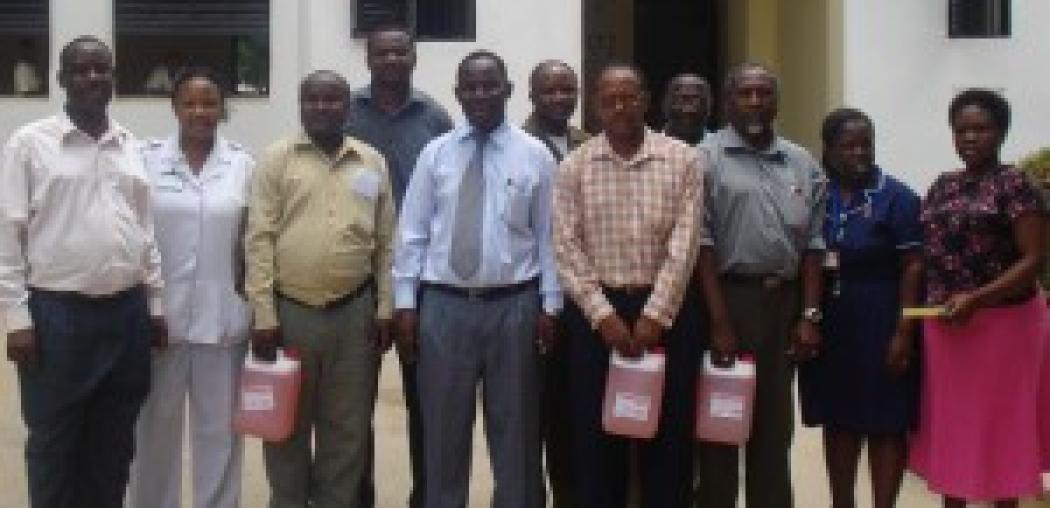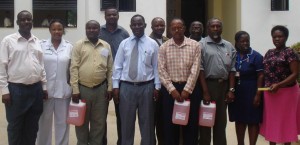US frontline health worker support allows palliative care delivery in Tanzania

By Hayden Peters and Jeremy Taglieri, FHSSA
The HIV/AIDS pandemic affecting Sub-Saharan Africa is one of the greatest crises of our era. However, the response to that crisis is one of the finest examples of how policies and programs can have lasting results for the betterment of the human condition. In 2003, the President’s Emergency Plan for AIDS Relief (PEPFAR) was enacted by the United States government. This massive investment in combating HIV/AIDS provided funding for the scaling up of medical services, including hospice care, across Africa. The program opened the door for organizations like FHSSA, formerly The Foundation for Hospices in Sub-Saharan Africa, to better support frontline palliative care workers. Through the PEPFAR-financed project known as CHAT (Continuum of Care for People living with HIV/AIDS in Tanzania), FHSSA was able to not only better support the work of hospices throughout Tanzania, but to do so in a cost effective and long-lasting way.
 In early March 2011, the first group of six staff from three Evangelical Lutheran Church of Tanzania hospitals completed their orientation on oral morphine use. They concluded their training by carrying home their first supply of five liters of oral morphine, which was available for patient use immediately. Here they pose with their trainers and colleagues. Courtesy FHSSA.
In early March 2011, the first group of six staff from three Evangelical Lutheran Church of Tanzania hospitals completed their orientation on oral morphine use. They concluded their training by carrying home their first supply of five liters of oral morphine, which was available for patient use immediately. Here they pose with their trainers and colleagues. Courtesy FHSSA.
CHAT, which operated from May 2006 to March 2011, aimed to improve palliative care capacity throughout Tanzania. With a $5 million budget and working in conjunction with the Evangelical Lutheran Church of Tanzania, the palliative care capabilities of 13 Lutheran hospitals involved in the program were improved. Each site was able to train a palliative care coordinator, an assistant, a chaplain, a social worker and a clinical officer to work full time at the organization. In addition, more than 500 volunteers at 12 of the programs were trained to help support and expand the reach of the program. As a result, more than 14,000 people, mostly in rural communities, received vital palliative care over the course of the project.
In addition to the number of trained professionals and volunteers, CHAT led to a breakthrough in morphine availability in rural Tanzania. Before CHAT, oral morphine was extremely limited, and those in Tanzania who lived outside of the main cities had virtually no access to it. Due to the funding provided from PEPFAR, CHAT was able to provide training to rural hospice and palliative care centers throughout the country, allowing each of the 13 hospitals to receive certification to prescribe and manage morphine. This was the first time that oral morphine was made widely available in rural villages, allowing for thousands of people in the countryside to receive pain medication.
Although CHAT officially ended, its effects will be seen for the foreseeable future. Palliative care has been greatly expanded throughout Tanzania in a sustainable way as a result of this project. Upon the end of the program, 12 of the 13 centers were able to work independently after receiving training from CHAT. In addition, all 13 sites have been partnered with an American hospice organization to continue their funding, support and training, through FHSSA’s partnership program.
Initiatives focused on the development of frontline health workers are critical to sustainably improving health outcomes. Such relatively inexpensive and effective programs can have success throughout a large area, while laying the foundation for future homegrown programs to emerge. All this is achieved while immediately improving the quality of life for those directly affected by disease and repairing the impact that the disease has had on the local community.
